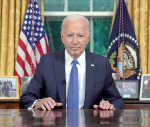You are here
Good news for Palestine
Oct 15,2014 - Last updated at Oct 15,2014
After the collapse of the Palestinian-Israeli peace talks, in April, the July war on Gaza, the August drowning of hundreds trying to emigrate to Europe and the September war of words between their two major factions, Palestinians welcomed this week a series of unexpectedly good news.
This began with the announcement by the newly elected Swedish prime minister that his Social Democratic coalition with the Greens Party will recognise the state of Palestine.
That was followed by a donor conference in Cairo for the reconstruction of Gaza, where Palestinian expectations were exceeded by the pledging of $5.4 billion to that aim.
The Palestinian unity government headed by Rami Hamdallah met in Gaza for the first time and President Mahmoud Abbas is now due to visit Gaza.
London was the source of yet more good news. The British House of Commons held a public debate on the need to recognise Palestine as a state; a huge majority (274 for, 12 against) of British MPs voted for Palestine.
At home, a public opinion poll showed strong support for the Palestinian unity government.
Abbas’ favourability numbers doubled, with Gazans showing much more support for the Palestinian leader than for Hamas.
Even the Israelis are showing some flexibility regarding Gaza, allowing, for the first time, Palestinians from Gaza to visit Jerusalem for Eid Al Adha and permitting in the first shipment of building material.
Some in Israel are admitting that the seven-year-old blockade on the Gaza Strip proved ineffective.
While this series of good news is welcomed, one cannot but look for possible landmines in every one of them.
The unity government’s meeting in Gaza was very short; the administration has yet to show real control or ability to take difficult decisions as long as Hamas controls security.
The British parliament’s decision will help greatly in seeking further recognition, but it is not binding on the UK government.
And the funds for Gaza are unlikely to be spent properly if the Israelis do not seriously relax the blockade.
Abbas may have decided to stop wasting time with talks with Israel, but there is no alternative strategy that can produce the elusive end to occupation and the realisation of Palestinian sovereignty.
This series of good news notwithstanding, the situation in the West Bank is nothing but bad.
Land confiscations continue, Israeli takeover of Palestinian houses in Silwan and daily settler incursions into Al Aqsa Mosque have gone without much notice.
The implementation of the Har Hametos settlement in East Jerusalem did get noticed and received US and international condemnation, but there is no sign that these public protests will do anything to stop the unilateral Israeli policies.
Palestinians are still searching for a formula that will end the occupation.
Abbas’ speech at the UN signalled that there will be a change from the talk for the sake of talk and a desire to move the statehood issue at the UN.
No sign, however, that the lame duck, the Obama administration, has any political capital to spend on Palestine as it tries, unsuccessfully so far, to deal with the Islamic extremists.
While international financial and political support must be saluted, the most important piece of good news this week was the symbolic but important progress regarding national unity.
The current technocratic government is only transitional (to be followed by elections), but the effort exerted to reverse the sad split will hopefully bear fruit.
Every step taken to cement Palestinian unity will go a long way to putting Palestine back on the right track.
Nothing of substance will happen to address Palestinian national hopes as long as the people are divided.
The move to hold a session of government in Gaza speaks volumes, but it is only the first step on a long road towards freedom and independence.
The more united Palestinians are the more they will be taken seriously by adversaries and friends alike.
The good news this week for Palestine should not allow anyone to be complacent.
Hard work was invested in Stockholm, London, Cairo and Gaza to get where they reached. Continuous hard work, selfless dedication and true national unity are essential to keep the momentum going.














